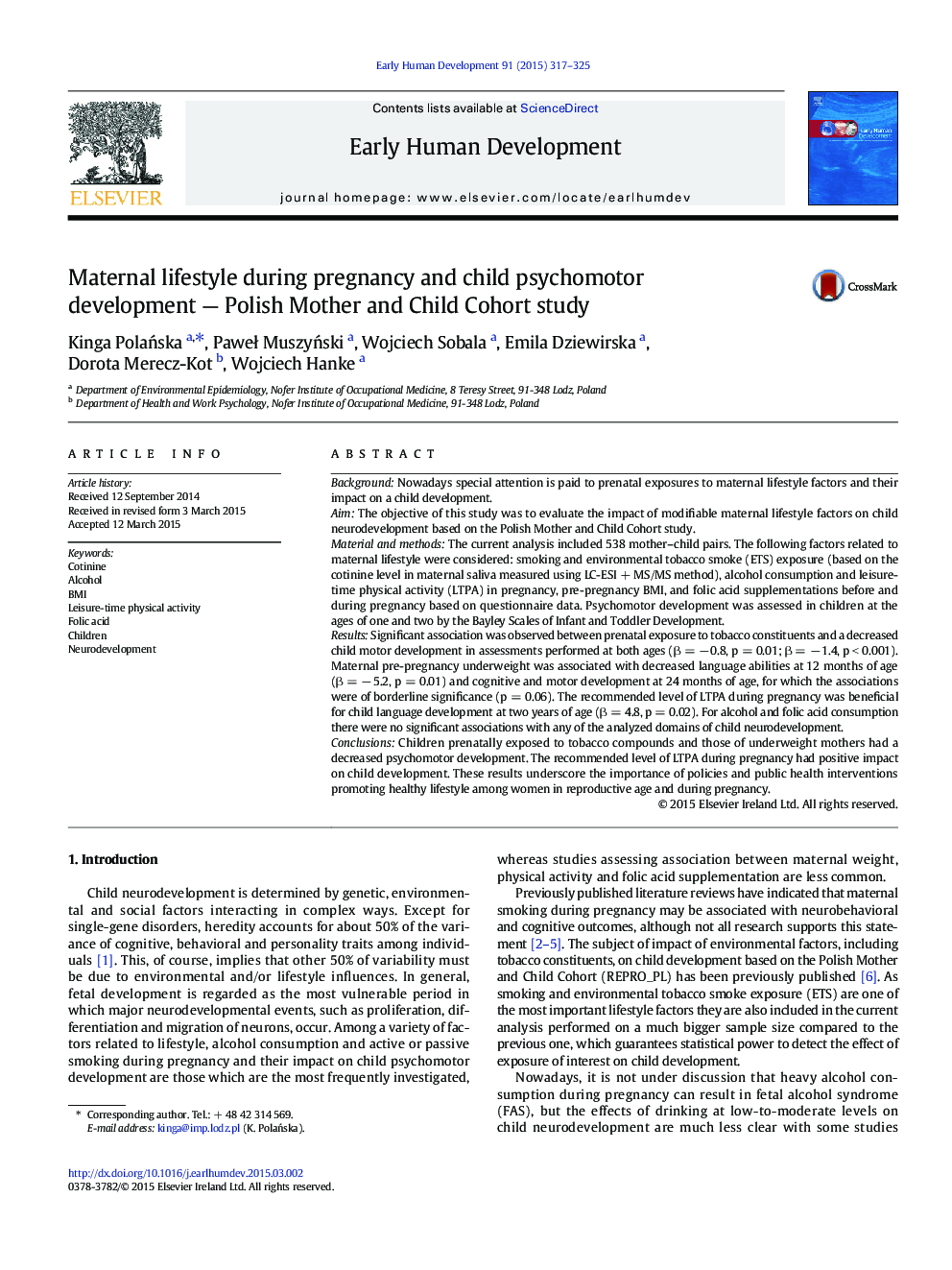| Article ID | Journal | Published Year | Pages | File Type |
|---|---|---|---|---|
| 3917884 | Early Human Development | 2015 | 9 Pages |
•Children prenatally exposed to tobacco compounds had decreased motor development.•Pre-pregnancy underweight was associated with decreased child language abilities.•Recommended LTPA level in pregnancy was beneficial for child language development.
BackgroundNowadays special attention is paid to prenatal exposures to maternal lifestyle factors and their impact on a child development.AimThe objective of this study was to evaluate the impact of modifiable maternal lifestyle factors on child neurodevelopment based on the Polish Mother and Child Cohort study.Material and methodsThe current analysis included 538 mother–child pairs. The following factors related to maternal lifestyle were considered: smoking and environmental tobacco smoke (ETS) exposure (based on the cotinine level in maternal saliva measured using LC-ESI + MS/MS method), alcohol consumption and leisure-time physical activity (LTPA) in pregnancy, pre-pregnancy BMI, and folic acid supplementations before and during pregnancy based on questionnaire data. Psychomotor development was assessed in children at the ages of one and two by the Bayley Scales of Infant and Toddler Development.ResultsSignificant association was observed between prenatal exposure to tobacco constituents and a decreased child motor development in assessments performed at both ages (β = − 0.8, p = 0.01; β = − 1.4, p < 0.001). Maternal pre-pregnancy underweight was associated with decreased language abilities at 12 months of age (β = − 5.2, p = 0.01) and cognitive and motor development at 24 months of age, for which the associations were of borderline significance (p = 0.06). The recommended level of LTPA during pregnancy was beneficial for child language development at two years of age (β = 4.8, p = 0.02). For alcohol and folic acid consumption there were no significant associations with any of the analyzed domains of child neurodevelopment.ConclusionsChildren prenatally exposed to tobacco compounds and those of underweight mothers had a decreased psychomotor development. The recommended level of LTPA during pregnancy had positive impact on child development. These results underscore the importance of policies and public health interventions promoting healthy lifestyle among women in reproductive age and during pregnancy.
